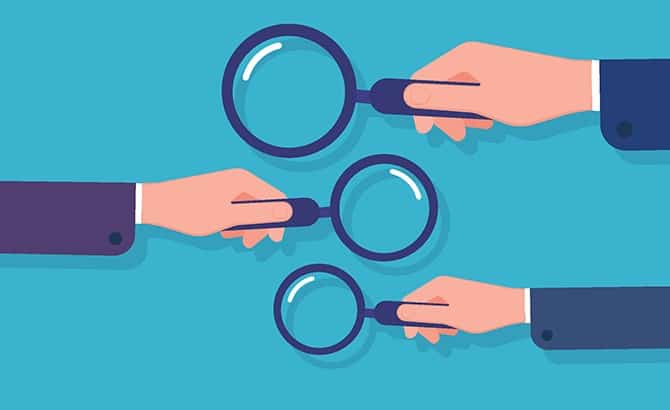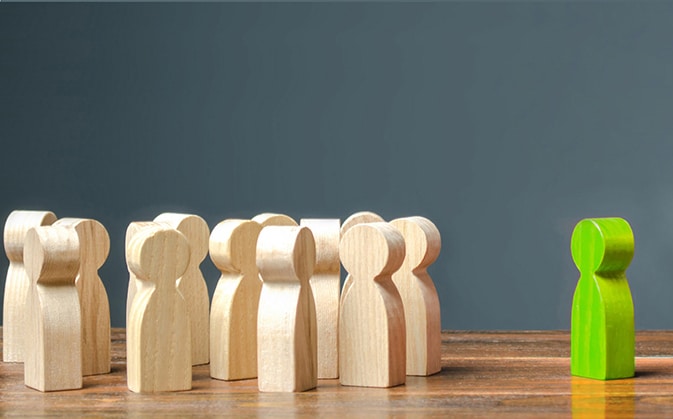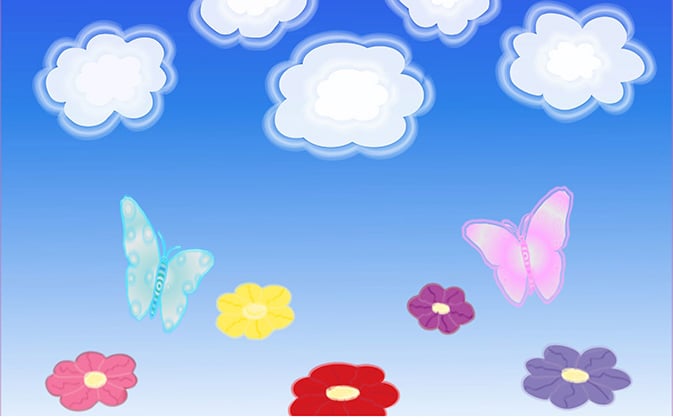
I Screen, You Screen, We All Screen for…Data?
January 28, 2020
Communication: Better Leadership
June 3, 2020By Rabbi Yaakov Sadigh
It was a beautiful spring day in 1979 when I boarded the bus to return home from my school in Tehran, Iran. As always, my mom had some cookies and milk ready for me when I entered the house. Having a snack kept me going until my dad got home and we had supper together. It was during dinner that night that my parents told me we will be leaving Iran in the morning. I dropped my fork and began asking several questions. My head was not in the sand. I had witnessed the daily demonstrations in the streets in the midst of a full-blown revolution. Iran was in turmoil as the Shah was about to be ousted and the future for the Jews of Iran was uncertain and dangerous. Never did I imagine, though, that I would leave everything that I had come to know in less than 24 hours. It took many months to finally make it to America as our journey led us through multiple countries and much hardship- but we made it.
Since the pandemic began, I have been sharing my story with students, teachers, parents, shul rabbis and child psychologists. It has been my way of coping with the coronavirus and the challenges it has presented to our schools and families. You see, when I arrived in the United States, I initially attended Public School. In the ordeal of running away from Iran, I missed 9 months of formal education and was left back a grade. I eventually caught up and skipped a grade- back to where I belonged.
There isn’t a day that goes by that I don’t draw inspiration from the strength that my father showed by picking himself up off the mat. I vividly remember his corner office in Iran in a prestigious firm. When he came here, he got a job on the assembly line at Armitron putting together watches because he happens to be handy. I never heard a complaint out of his mouth. Never! My mom and dad didn’t have the opportunity to go to Yeshiva. I myself attended a Muslim school in Iran. Yet, there are things I have learned from them over the years that no teacher or book has taught me. I missed 9 months of math and many other subjects, but I gained a lifetime of GRIT.
Our kids are still learning, – albeit virtually, under difficult circumstances. What I have tried to impress upon parents who are petrified that their kids are going to fall behind in school is that in addition to being caring parents, they have now become teachers as well, not by choice but by fate. During these days, there is so much that children can learn from their “home teachers”; lessons that are not necessarily picked up at school.
For the last few weeks, I have watched my children cook and bake together, experimenting with new recipes and coming up with some interesting concoctions. They picked up new instruments and got lost in books they normally would not have read. They found a new appreciation for the world around them by showing gratitude for all that they have. For the first time that I can remember, we had dinner together every night, laughing and sharing stories never told before. This Pesach, we experienced the most meaningful Seder ever as a family. Not hosting 30 guests allowed us to have a dialogue with each one of our kids on a night when children should be the focal point of the story of our Exodus. My twin girls are seniors and looked forward to all the special activities that normally take place towards the end of a school year. That was not meant to be. When they turned 18, they had to cancel a special party arranged for them by their friends. Instead, a parade of 20 cars passed our house honking, and blasting loud music while displaying birthday wishes. They learned to deal with disappointment and manage in a world that suddenly has limits and boundaries.
I received so much inspiration from a letter that Dr. Jennifer Gallagher, Superintendent of Long Beach Public Schools in NY, wrote to her school community. Here is an excerpt from her message:
“Don’t worry if you are not the perfect homeschooling parent; don’t worry if you are torn between working at home and helping your kids. Don’t let your kids spend nine hours a day doing schoolwork online—cut them off, and tell the teacher it was too much. Don’t let these days be joyless for your kids. Twenty years from now, your children will not remember what they learned during the spring of 2020—honestly, they won’t! They WILL remember the time they stayed home for a few weeks with you. They will tell their own children about feeling safe, and loved, and peaceful during an anxious time. They will remember the fun things you did with them. Do what is most important for your family these days. Together, we will come through this, and we will look at the world differently. Be kind to yourself, and wrap your kids in love.”
As educators, we also assumed an important role. We bottled our own anxieties about the uncertainties of the future and entered the Zoom sessions each day with a smile and passion. After all, as leaders, that’s what teachers do. I was in 9th grade when an educator from New Hampshire by the name of Christa McAuliffe was selected to become the first teacher in space. She joined the crew of the Space Shuttle Challenger for a special mission, the NASA Teacher in Space Project. We had learned all about the mission and how McAuliffe was preparing to teach two lessons from space. So, on January 28,1986, our teacher wheeled in the large size TV on those old carts with big wheels and plugged it in to an outlet in front of the classroom. After playing around with the antenna a bit, she tuned into the channel that was televising the lift off live. We were glued to the TV with excitement when only 73 seconds into the flight, the Challenger blew up right in front of our eyes. What I remember most about that moment is how 20 sets of eyes turned to our teacher waiting for her to address us. After all, we were a bunch of 14 year olds. How could we make sense of what just happened? Fifteen years later, on September 11, 2001, I was that teacher with 20 sets of eyes staring at me after we watched the Twin Towers collapse from our classroom window. A teacher is that lighthouse in the storm.
I recently came across an interesting article about another pandemic that forced children into a lockdown. In the fall of 1937, an outbreak of polio swept through the Chicago area forcing schools to delay the opening of the academic year. This led to a great deal of panic and concern about lost instructional time for students. In a bold move, Chicago Superintendent, Willian H. Johnson, decided to experiment by bringing school lessons into the homes of students through radio broadcasts- and we thought we were the ones who discovered distance learning.
In the 1930s, the idea of school-by-radio was highly innovative, prompting excitement and curiosity from educators around the country.
The schedules of broadcast times and dates, along with “directions, questions, and assignments” were available in the local papers each morning so that students could find the lesson for their own grade level and be prepared to set their dials.[1]
Different subjects were also covered on specific days; Mondays, Wednesdays and Fridays were devoted to social studies and science, with Tuesdays, Thursdays and Saturdays slotted for English and mathematics. After each airing, a committee of two principals reviewed the lessons and rated them on aspects like “clearness of articulation and suitability of vocabulary,” giving a basis for improvement on the next broadcasts.[2]
In the end, school-by-radio faced challenges very similar to our experiences today. Some broadcasts moved too quickly, resulting in students missing critical information. Homes did not have multiple radios to accommodate every child, and finding an appropriate learning space for every kid was difficult. Then there were the students who required remediation who struggled greatly with one-size-fits-all radio lessons. Yet with all the hiccups, the students were engaged and for what it was worth, hearing those lessons broadcasted in their homes provided some comfort and normalcy.
It wasn’t perfect in 1937 but they somehow managed to persevere and so will we. Like the moms and dads at home, we educators also have the opportunity to teach all the intangibles that will shape these kids into young men and women who will have some stories to tell their own children when it will be their turn to instill resilience.
Gam Zeh Yaavor, this too shall pass! We hope that what our children have gained along the way, will stay with them forever.
[1] William H. Johnson, “Air Lessons Offer New School Test: Educators Show Wide in Experiment, Forced on Chicago by Poliomyelitis,” New York Times, Sept. 19 1937.
[2] Ibid.
Rabbi Yaakov Sadigh serves as Head of School at the Hebrew Academy of Nassau County- West Hempstead Campuses. He is invited to lecture and present workshops on a broad range of educational topics including intentional leadership, building a collaborative school culture and improving student behavior. He can be reached at [email protected].

